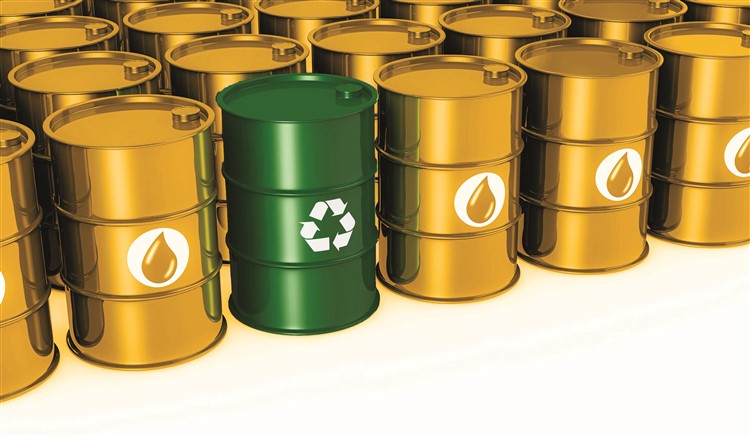Waste management should be done in the best way within the lubricant life cycle. According to the waste hierarchy, waste is managed through the following phases: prevention, reduction, reusing if possible, recycling, chemical/material recovery, energy recovery, and disposal. In waste recycling, the origin, quality added to the original waste, functionality, value and price -in short the added value created with technology- constitutes the basis for the concepts of upcycling, recycling and downcycling. The term recycling is frequently used, while upcycling takes its place in our lives and in the circular economy with increasing R&D studies and industrial applications. Base oil production with the re-refining of lubricants that have completed their useful life is the perfect example of upcycling technology in the world of lubricants.
Lubricant consumption causes the largest amount of liquid and anhydrous hazardous waste in the world. While used oils are mostly managed by processing them in small or large traditional facilities and/or burning them in accordance with the legislation, upcycling investments based on the circular economy with waste prioritization are not enough yet.
While base oil is produced from used oil by re-refining in upcycling refineries, used oil creates employment in sustainable development by gaining human, nature, environment and climate friendly added value in the circular economy. Thus, upcycled base oil is offered to the market with its many advantages over petroleum based base oils.
We started this year with the developments in the European Green Deal, the Circular Economy Action Plan, the Industry Strategy, the Emission Trading System, and the Climate Law. The momentum for a green enthusiasm for the industry had begun. The pandemic reminded us the need for green and blue recovery of land and water ecosystems. GEIR (Groupement Européen de l’Industrie de la Régénération), the European Re-refining Industry Group of UEIL (Independent Union of the European Lubricants Industry), represents 17 companies in 12 countries. TAYRAŞ Base Oil Refinery is the only GEIR member of our country. Dr. Christian Hartmann’s article “2020: The year of new green resolutions” is featured in the Lube Magazine, February 2020 edition. In his article he emphasized the importance of these developments for used oil management with the European Green Deal, the Circular Economy Action Plan, and the Industry Strategy. I wish all the best for Marco Codognola, the new GEIR President.
Industry, exporters, lubricant producers and used oil processors in our country closely follow the developments in Europe. Our climate change policy will gain strength with the Climate Change Law and the Emission Trading System Regulation, which are almost finalized. In our country, used oil upcycling will have a special place in the sustainability management of the lubricants industry.













